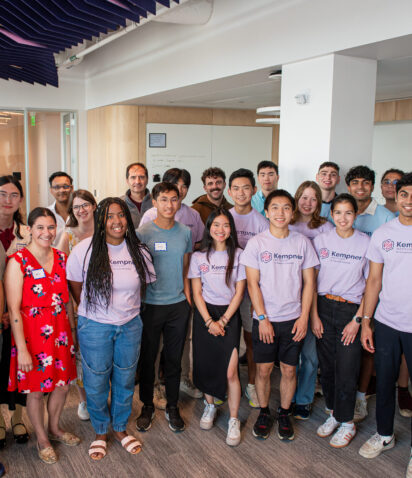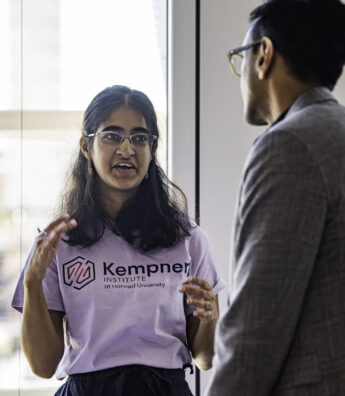Undergraduate Research Programs
The Kempner offers programs during the academic year, as well as over the summer, to support Harvard undergraduates interested in pursuing intelligence-related research under the guidance of a Kempner-affiliated mentor.

Academic Year Program
KURE (Kempner Undergraduate Research Experience) is an academic year program that provides term-time funding and support for research related to the study of intelligence in the fall and spring semesters.

Summer Program
KRANIUM (Kempner Research in Artificial & Natural Intelligence for Undergraduates with Mentorship) is a 10-week intensive summer residential program sponsored by the Kempner Institute as part of the Harvard Summer Undergraduate Research Village (HSURV).

Undergraduate Research Opportunities
Prior to applying to KURE or KRANIUM, students must select a Kempner-affiliated faculty mentor and collaborate to identify a project. To help students find mentors and projects, the Kempner maintains a non-exhaustive list of possible research opportunities for undergraduate researchers.
Undergraduate research opportunitiesQuestions?
Please email us at kempnereducation@harvard.edu with any questions about Kempner undergraduate research programs. To receive updates about Kempner undergraduate programs, sign up for our undergraduate mailing list.



